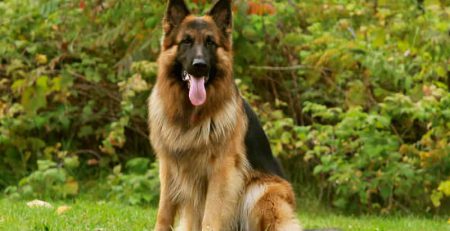Coronavirus and your dog
One of the biggest events of 2020 so far is the Coronavirus outbreak in Asia. The worst outbreak has been in China, though a few people in other countries have been affected too. There are guides and protocols in place for humans, but what about man’s best friend? Are dogs at risk from this disease, or is the hysteria completely unfounded?
What is Coronavirus?
Named for the crown-like projections on their surfaces, Coronaviruses are a large family of RNA viruses. This virus family was first discovered in the 1960s, and is responsible for diseases such as SARS, Middle East Respiratory Syndrome, and the current viral outbreak that started in Wuhan, China.
Most Coronaviruses cause either upper respiratory or intestinal symptoms. There are many members of the Coronavirus family, and their ability to cause illness is variable. The current outbreak is caused by the virus 2019-nCoV, which is particularly contagious, deadly, and resistant.
Can dogs get Coronavirus?
Dogs can become infected with certain strains of Coronavirus. The most common strain that affects dogs is the Intestinal form, which causes a severe intestinal infection. Affected dogs suffer from severe abdominal discomfort and diarrhoea. It is easy to confuse an intestinal Coronavirus infection with Parvovirus, as the symptoms are similar.
Crowding and poor hygiene help to spread the virus. Dogs become infected through contact with infected faeces, by sharing bowls with infected dogs, or by being in direct contact with an infected dog. There is no specific treatment for intestinal Coronavirus: antibiotics are useless against viruses but can help prevent secondary bacterial infections. The main therapy involves keeping the dog hydrated and his/her electrolytes balanced.
Vaccination against this type of Coronavirus is standard in some areas, but it depends on your dog’s lifestyle and how high the risk of infection is.
There is a respiratory form of the virus that affects dogs. Canine Respiratory Coronavirus is more closely related to the virus that causes the common cold in humans. It causes an acute respiratory infection, and may also lead to Kennel Cough. Large numbers of dogs housed together, such as dogs at boarding kennels, are most at risk of contracting the virus through direct contact with infected dogs, or contact with contaminated surfaces. This disease usually leads to coughing, sneezing and nasal discharge, but will typically resolve itself in a couple of weeks.
But what about the current epidemic?
The current Coronavirus epidemic, caused by the virus 2019-nCoV (sometimes called the Wuhan Coronavirus), has so far not been identified in any pet animals like dogs and cats. The virus can be spread from human to human, and probably originated from an animal source, since a live animal market in China seems to be the origin of the first reported human infections. There is a chance that the virus could mutate and be able to affect dogs, but so far this hasn’t happened, and seems unlikely.
But there is no evidence that companion animals can be infected with or spread 2019-nCoV.
There is also no proof that humans can spread the virus to pets. Do wash your hands thoroughly with soap and water after contact with a pet, as this will protect you from other more common infections such as E.coli and Salmonella. If you plan to visit a live animal market or an area affected by the virus, avoid contact with any and all animals, including stray cats and dogs, as it is better to be safe than sorry.
How can I keep my dog safe?
You may have seen photos of pets wearing mask and coveralls, copurtesy of concerned owners hoping to protect them from the Coronavirus. Although Prof. Li Lanjuan, a member of the senior expert team from China’s National Health Commission, warned that pets should be quarantined if exposed to coronavirus patients, the World Health Organisation has stated that pet animals are not at risk from the virus. Due to misinformation and fear, animals in China and surrounding countries are being unnecessarily killed or abandoned for fear that they will spread the virus.
Based on current evidence, your dog is unlikely to contract 2019-nCoV. You do not need to buy them a mask or similar protective clothing. You probably shouldn’t bring your pet to visit an infected person, as your pet may carry other viruses or bacteria that could be dangerous to an already ill person.
It is good to take precautions, as viruses are capable of mutating to attack different species. Avoid raw food products, especially meat. If you are thinking of travelling from China or another affected area and want to take your dog, make sure that he/she has had all the necessary vaccines, and is ready for quarantine.
What should I do if I think my dog has corona virus?
Although your dog is highly unlike to contract 2019-nCoV, he/she could catch the more common strains of intestinal or respiratory canine Coronavirus. These diseases are not usually fatal in healthy adults, but can be deadly for puppies. If your dog shows any of the symptoms listed below, be sure to take them to a vet. Your vet can examine your dog and run tests. The sooner you bring your dog to the vet, the higher the chance of a successful treatment and recovery.
What are the symptoms of corona virus?
Intestinal canine coronavirus: The most typical symptom is a sudden onset of diarrhoea. The faeces are loose, with a strong odour, and a slight orange colour. The faeces may contain mucous of blood. Affected dogs may also be feverish, lethargic, and have a decrease appetite.
Respiratory canine coronavirus: This pathogen usually causes an acute respiratory infection. Infected dogs have nasal discharge, and will cough and sneeze. A small number of dogs that contract this disease may also develop pneumonia.
The human Coronavirus 2019-nCoV: This viruses causes repiratory symptoms, fever, coughing,and difficulty breathing. A serious infection can lead to pneumonia, severe acute respiratory syndrome, kidney failure and even death.






















